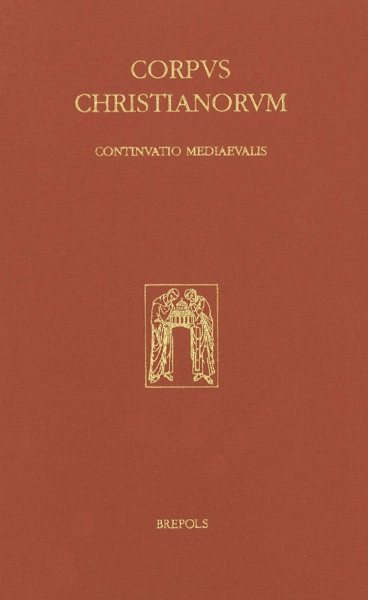
Raimundus Lullus
Opera latina XXXIX (64)
Ars ad faciendum et solvendum quaestiones
Joan Carles Simó Artero (ed)
- Pages: lxxxv + 788 p.
- Size:155 x 245 mm
- Illustrations:3 b/w, 1 col.
- Language(s):Latin, Spanish
- Publication Year:2021
- € 495,00 EXCL. VAT RETAIL PRICE
- ISBN: 978-2-503-58677-9
- Hardback
- Available
Ramon Llull on asking and solving questions: critical edition of the Ars ad faciendum et solvendum quaestiones
“Con este libro –magníficamente editado, como todos los de la colección– se da un paso más hacia la ansiada edición crítica de todas las obras lulianas. esperemos que en los próximos años no decaiga el ritmo de publicaciones y que prosiga de forma tan exitosa como en el caso que nos ha ocupado.” (Rafael RamiS Barceló, in Archivum Franciscanum Historicum, 115/1-4, 2022, p. 563)
Joan Carles Simó Artero holds a Bachelor’s degree in classical languages and a PhD in Philosophy and Letters from the University of the Balearic Islands, where he is an associate professor. The Latin edition of the Ars ad faciendum et solvendum quaestiones was the subject of his doctoral thesis. He has organized and participated in various forums on the figure of Ramon Llull and collaborated with the Raimundus-Lullus-Institut of the Albert-Ludwigs-Universität Freiburg promoting the edition of the Latin work of Llull.
This work by Ramon Llull, originally composed in Catalan (‘Art de fer e solre questions’), was written in Rome in 1295. It is also known as Lectura super Artem inventivam et Tabulam generalem, as it attempts to make the Ars inventiva veritatis (op. 44) and Tabula generalis (op. 53) more approachable. In the prologue Llull expresses his wish for this work to be translated into Latin. It belongs to the so-called encyclopaedic writings in the Lullian production, and the author announces a thousand questions related mainly to theology. The present work aims to provide a general technique applicable to any subject, a practical usage of the Ars inventiva veritatis and the Tabula generalis. In general, Llull develops some aspects dealt with in op. 44 and op. 53 in order to solve possible objections or to experiment with new procedures. It is another step in the great epistemological project of the Majorcan: to establish a new general science that overcomes the difficulties inherent in scholastic-Aristotelian science, to apply its method to the articles of the Christian faith, and to create a universal scientific system as a solid basis for the other sciences.





